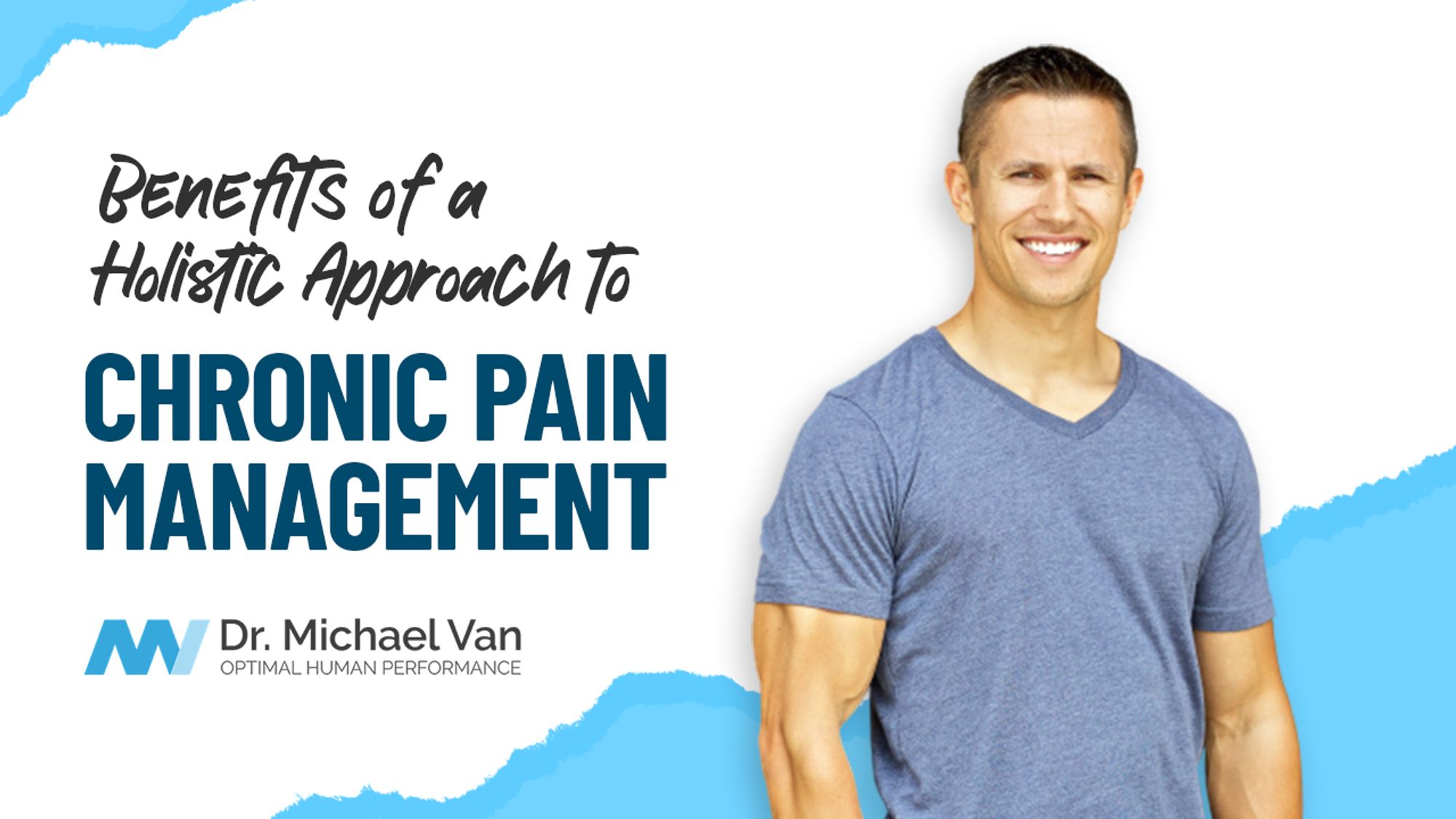Benefits of a Holistic Approach to Chronic Pain Management

Chronic pain can be a complex and multifaceted issue, with various factors contributing to the intensity and persistence of discomfort.
Many individuals seeking relief from chronic pain have found that a single method of treatment may not always yield the desired results.
In these cases, taking a more comprehensive and integrative approach to pain management can offer significant benefits, as it addresses not only the physical pain but also the mental and emotional aspects that accompany it.
I believe a holistic approach combining complementary therapies with lifestyle changes leads to achieving long-lasting relief from chronic pain.
A holistic approach to pain management aims to reduce suffering by addressing the root causes of pain rather than masking the symptoms with medication.
It encompasses various complementary therapies designed to enhance the body's natural healing processes while also improving overall well-being.
Some of the treatments that may be incorporated into a comprehensive pain management strategy include chiropractic care, acupuncture, massage therapy, and yoga.
Each technique has unique benefits and can have a profound impact on the effectiveness of traditional pain management methods.
In addition to complementary therapies, a holistic approach to pain relief also emphasizes the importance of lifestyle changes.
Factors such as poor nutrition, lack of exercise, and high levels of stress can contribute to chronic pain and hinder the body's healing processes.
By making necessary adjustments in these areas, you can support your recovery and improve your overall quality of life.
By embracing a comprehensive strategy combining the best of conventional and complementary therapies, chronic pain sufferers can find lasting relief from their discomfort and achieve optimal well-being.

Subscribe To Dr Mike's MVP Newsletter!
Exclusive content, interesting topics, real insights.

Subscribe To Dr Mike's MVP Newsletter!
Exclusive content, interesting topics, real insights.
Chiropractic Care and Acupuncture as Complementary Treatments
When it comes to chronic pain management, many patients find that combining the cutting-edge techniques of regenerative medicine with more traditional approaches like chiropractic care and acupuncture can be incredibly beneficial.
Chiropractic care focuses on the alignment of the spine and musculoskeletal system, which can have a direct impact on pain arising from joint and nerve issues.
Trained professionals, known as chiropractors, manipulate the spine and joints to restore proper alignment and relieve pain and discomfort.
Similarly, acupuncture is an ancient Chinese medicine practice that involves the insertion of thin needles into specific points on the body, known as acupoints.
This stimulates the body's natural healing processes, releasing endorphins and other pain-relieving substances.
Both chiropractic care and acupuncture can work alongside regenerative medicine to enhance the overall effectiveness of a holistic pain management plan.
Massage Therapy and Yoga: Pain Relief through Relaxation and Movement
Addressing the physical aspects of pain is essential, but so is tending to the emotional and psychological components that often accompany chronic discomfort.
Massage therapy and yoga can help patients cope with chronic pain by promoting relaxation, reducing stress, and improving flexibility.
Massage therapy involves the manipulation of soft tissues in the body to alleviate pain and promote relaxation.
It can be especially beneficial for individuals with musculoskeletal pain, as trained massage therapists can work to release tight muscles, improve circulation, and promote pain-relieving endorphins.
Yoga, an ancient practice that combines mindful breathwork with physical postures, is another valuable addition to a holistic pain management strategy.
Through gentle stretches, strengthening exercises, and meditative techniques, yoga can improve flexibility, decrease stress, and reduce pain levels for those suffering from chronic pain conditions.
The Role of Nutrition in Holistic Pain Management
Eating a nutrient-rich diet is essential for overall wellness, but it can also have an impact on the severity and persistence of chronic pain.
Certain foods can increase inflammation in the body, leading to increased pain levels, while others possess anti-inflammatory properties that can help reduce discomfort.
A whole-food, balanced diet rich in animal meats, fruits, vegetables, whole grains, and healthy fats is often recommended for optimal pain management.
Foods such as steak, chicken, leafy greens, berries, nuts, and fatty fish like salmon are particularly beneficial, as they contain valuable nutrients, antioxidants, and anti-inflammatory compounds that can help ease the pain.
Patients are often encouraged to avoid processed foods and added sugars as these can contribute to inflammation and exacerbate pain.
Drinking plenty of water and staying properly hydrated is also crucial for promoting overall health and preventing increased pain levels.
Mental Health and Stress Reduction
Understandably, chronic pain can take a significant toll on an individual's mental health.
Stress, anxiety, and depression are common among chronic pain patients, and these emotions can, in turn, worsen the physical symptoms of pain.
Consequently, addressing mental health with stress reduction techniques is vital to a comprehensive pain management plan.
Various relaxation and mindfulness practices, such as meditation, deep breathing exercises, and progressive muscle relaxation, can help individuals cope with stress and improve their emotional well-being.
In addition, engaging in physical activities like walking, swimming, or gentle stretching can release endorphins, which are natural mood elevators that can also help to alleviate pain.
Working with a mental health professional, such as a therapist or counselor, can also be beneficial for chronic pain sufferers, as they can provide support and guidance on effective strategies for coping with the emotional aspects of living with chronic pain.
Final Thoughts
In the face of chronic pain, adopting a holistic approach that takes into account the full spectrum of factors contributing to the condition can be remarkably effective.
By combining complementary therapies like chiropractic care, acupuncture, massage therapy, and yoga with targeted lifestyle changes addressing nutrition and mental health, patients can work towards lasting relief from chronic pain.
My team and I at our Huntington Beach office help individuals suffering from chronic pain and give them the opportunity to explore a more comprehensive and integrative approach to pain management.
Utilizing both cutting-edge regenerative medicine techniques and traditional methods, this approach has the potential to transform countless lives by addressing both the symptoms and root causes of chronic pain.
To learn more, stay tuned for our series of informative blog posts, and be sure to browse through our website for further resources and support on your journey to pain-free living.
Dr. Michael Vanderschelden, DC
18600 Main St STE 110
Huntington Beach, CA 92648
Copyright ©2025
Site designed by iTech Valet
Subscribe To Dr Mike's MVP Newsletter. Exclusive Content ONLY!
Dr. Michael Vanderschelden, DC
18600 Main St STE 110
Huntington Beach, CA 92648
Copyright ©2025
Site designed by iTech Valet
*These statements have not been evaluated by the Food and Drug Administration. These products are not intended to diagnose, treat, cure or prevent any disease.
